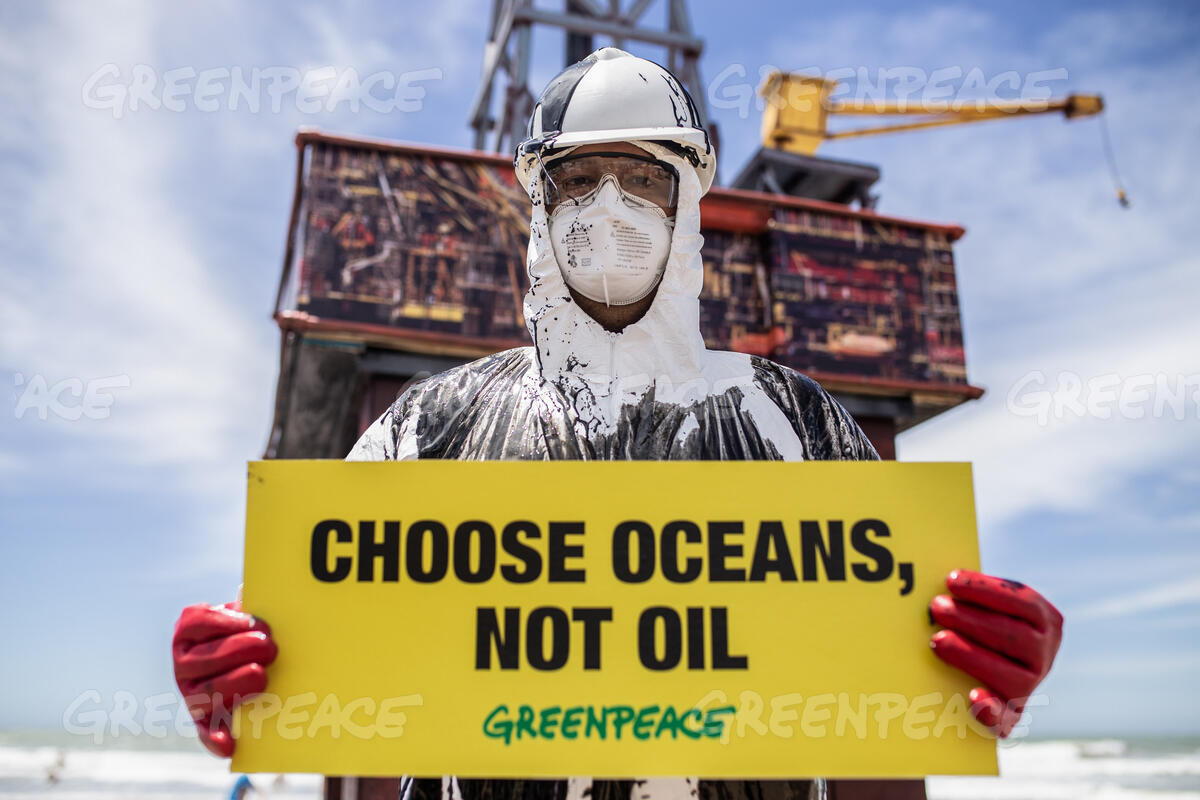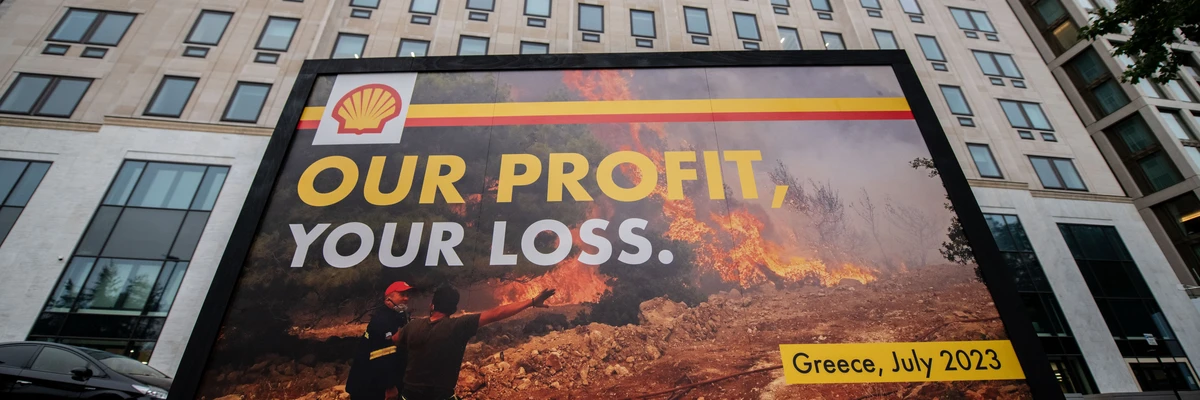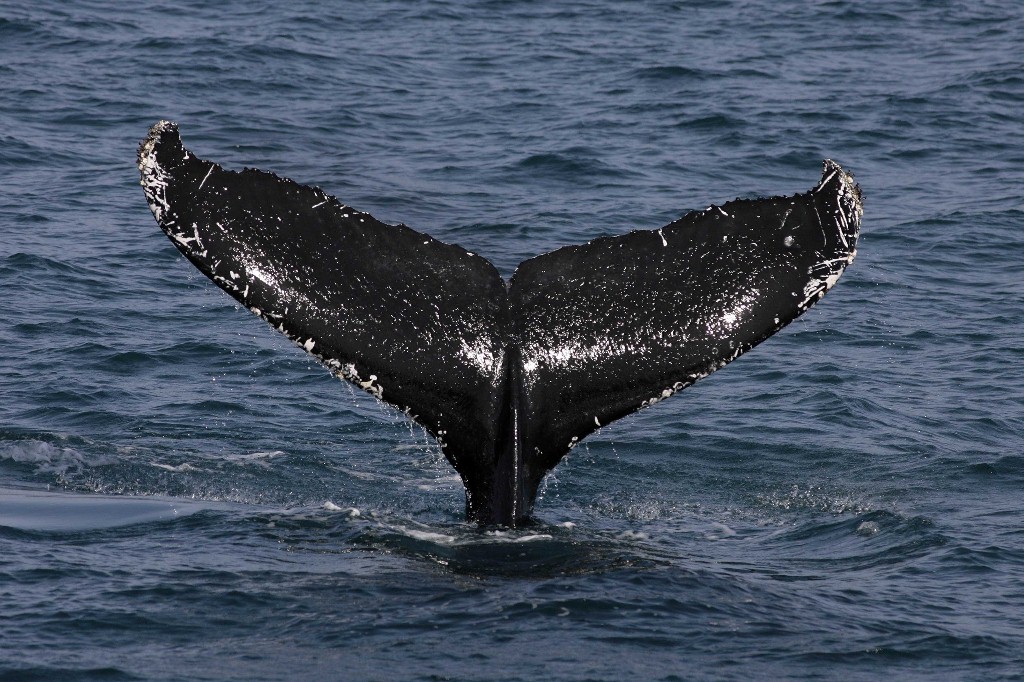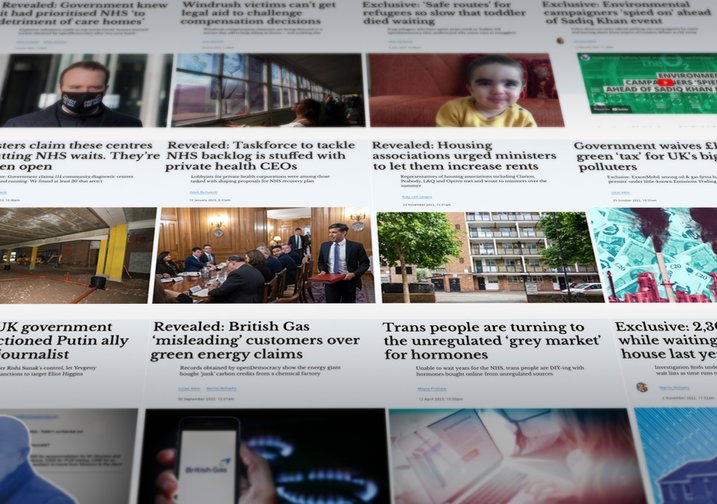The Future Can Do Better Than Air Taxis for the Super Rich
Original article by SAM PIZZIGATI republished from Common Dreams under a Creative Commons Attribution-Share Alike 3.0 License.
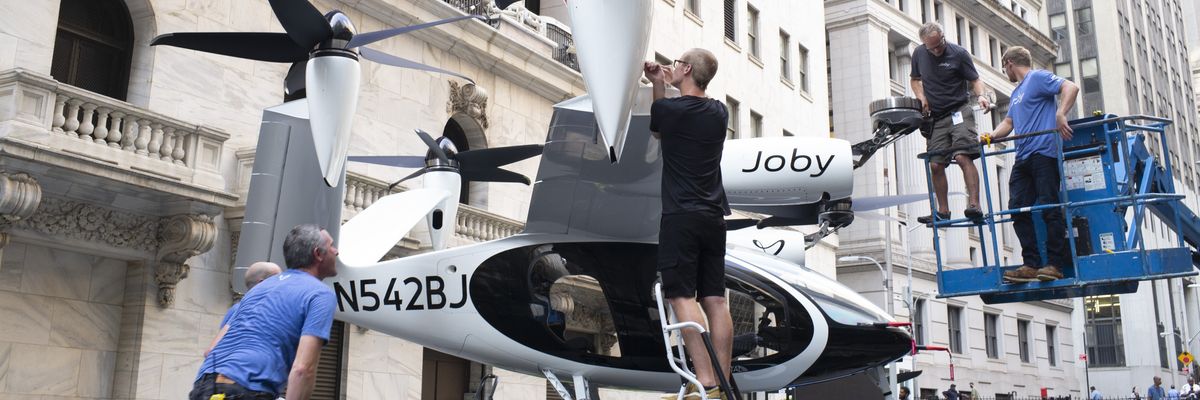
An Electric Vertical Take-Off and Landing (eVTOL) aircraft developed by Joby Aviation Inc. is seen outside the New York Stock Exchange (NYSE) during the company’s initial public offering on August 11, 2021, in New York. (Photo: Liao Pan/China News Service via Getty Images)
The Future Can Do Better Than Air Taxis for the Super Rich
Just imagine if all the investments and expertise going into turning our skies into air-taxi lanes for the richest among us were instead going into air-speed services that actually meet real public needs.
Look, up in the sky! It’s a bird! It’s a plane, it’s… Wall Street’s electric air-taxi future!
Earlier this month, a flying machine from the California-based Joby Aviation became the first “electric vertical take-off and landing aircraft—“eVTOL”—to go airborne from the Downtown Heliport that services Lower Manhattan’s financial district.
Joby is now expecting, by sometime in 2025, to be regularly ferrying high finance’s finest from Wall Street to JFK Airport in a mere seven minutes. Mere mortals taking autos and subways routinely spend well over an hour making the same trip.
We must not let ourselves treat climate and inequality as “separate issues,” environmental activist Greta Thunberg adds in her foreword to Oxfam’s latest appraisal of our world’s environmental and economic crises.
Joby’s new one-pilot, four-passenger eVTOL figures to be only the first of many corporate efforts to speed New York’s deepest pockets on their electric way to destinations both lucrative and exotic. A host of corporations—from China’s eHang to Germany’s Volocopter—already have big plans underway for zipping the world’s richest up and over congested city streets.
But just imagine if all the investments and expertise going into turning our skies into air-taxi lanes for the richest among us were instead going into air-speed services that actually meet real public needs. Imagine air taxis, for instance, ferrying critically injured rural residents to distant emergency care.
Those sorts of efforts will have to wait. The vast wealth of our wealthiest is instead bending innovation and expertise to servicing the already rich. And that bending, new research out of Oxfam details, is keeping our planet’s richest entertained at a vast environmental cost.
The world’s wealthiest 1%, Oxfam’s latest research reveals, are now generating more carbon emissions than all the world’s poorest 66% combined. The carbon emissions from this 1% will—between 2020 and 2030—“cause 1.3 million heat-related deaths” worldwide.
The world’s bottom 99%, Oxfam adds, would have to consume away for 1,500 years to match the carbon output that billionaires now produce in a single year.
But, even so, the political impact of the super rich actually outpaces the impact of their personal energy consumption. Only our richest “have the wealth, power, and influence to protect themselves.” And that same “wealth, power, and influence,” the new Oxfam study lays out, is keeping governments worldwide doing no more than “incentivizing incremental change” in energy policy instead of phasing out fossil fuels and investing massively in renewable energy.
We must not let ourselves treat climate and inequality as “separate issues,” environmental activist Greta Thunberg adds in her foreword to Oxfam’s latest appraisal of our world’s environmental and economic crises.
“Either we safeguard living conditions for all future generations,” she relates, “or we let a few very rich people maintain their destructive lifestyles and preserve an economic system geared towards short-term economic growth and shareholder profit.”
The “twin crises of climate and inequality,” Oxfam’s Climate Equality: A planet for the 99% report goes on to spell out, are “driving one another”—and only “a radical new approach” stands any chance of “overcoming the catastrophe unfolding before us.”
That “radical new approach” must take on “the disproportionate role that the richest individuals play in the climate crisis through their emissions, investments, and capture of politics.”
How can we best realize this badly needed “new approach”? We would need, argues Oxfam, to start aggressively taxing our super rich and the corporations that fuel their fortunes “to help pay for the transition to renewable energy.”
Just one example: Some 45 major oil and gas corporations averaged annual windfall profits of $237 billion in 2021 and 2022, dollars that overwhelmingly funneled straight into rich shareholder pockets. Governments worldwide, Oxfam notes, could have increased global investments in renewable energy by 31% had they taxed this windfall profit at 90%.
The new Oxfam study surveys a wide range of other options the world’s nations could pursue to subject the rich to serious taxation. Govrnments could, for instance, levy “steep and progressive” tax increases on the incomes of the ultra rich—as well as on their property, land, and inheritances. They could raise taxes on corporate profits, fossil fuels, and financial transactions—or levy entirely new taxes on “high-emitting luxury travel.”
The world, in other words, could have plenty of money for social and climate spending “if rich-country governments were willing to implement bold and progressive tax reforms.”
“We cannot allow the richest countries to claim that they cannot afford to raise the trillions needed,” Oxfam ends up concluding. “Mobilizing this money simply takes political will.”
Original article by SAM PIZZIGATI republished from Common Dreams under a Creative Commons Attribution-Share Alike 3.0 License.
- Here’s How The ‘Jet-Owning Oligarchy’ Harms Both Planet And Workers ›
- ‘Every Billionaire Is A Policy Failure,’ Says Oxfam As Global Elite Gather In Davos ›
- Oxfam Slams Rich Nations For Using ‘Financial Wizardry’ To Skimp On Global Climate Funding ›
- Growing Calls To ‘Audit The Ultra-Rich’ As Yellen Says Tax Dodging Could Cost US $7 Trillion Over 10 Years ›
- ‘Luxury Mega-Polluters’: Climate Activists Target Private Jets Of Ultra-Rich In Geneva ›
- Emissions Of Richest 1% Will Cause 1.3 Million Heat Deaths: Oxfam ›

